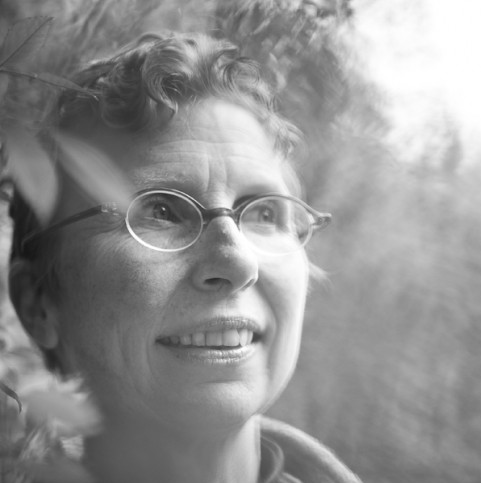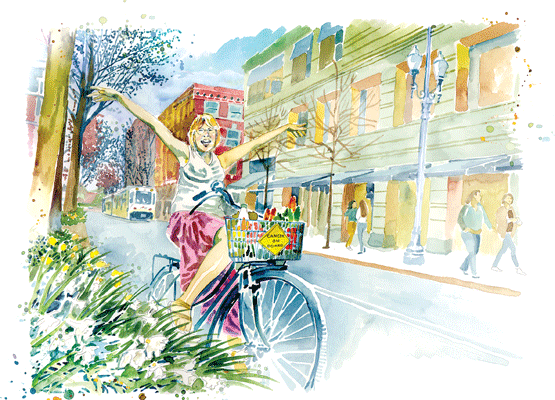Every once in a while, you hear about someone like Marcy Westerling (March 25, 1959 – June 10, 2015). A woman who had undergone a fair share of adversity and prejudice, Marcy, a native New Yorker who made the Pacific Northwest her home, never let her strength or giving spirit be stunted. Even when Marcy was diagnosed with stage IV ovarian cancer in 2010, she found a way to turn her diagnosis into a tool for helping others. Through the creation of a blog that chronicled her journey, she was able to reach out to thousands of people from all corners of the world. Cancer is certainly a force to be reckoned with. Yet, it also taught Marcy a valuable skill: the beauty of dying with grace. It has been almost a month since Marcy’s death, but her inspiring outlook on death continues to resonate with us.
“[She] was a force to be reckoned with,” say Marcy’s friends, “fiercely smart, brave and bold, profanely funny, strong and determined. She brought these same qualities to her life as a cancer warrior — the moniker she had tattooed onto her wrist. ‘I dare the world to ignore my diagnosis just as I defy any attempt to limit me to my diagnosis,’ she wrote. [Her] hands were never idle.”
Indeed, idle was never an option of Marcy. She founded the organization Columbia Citizens for Human Dignity in 1992 to combat anti-gay sentiments in her community, but she wanted to go even further. In 1993, she established Oregon’s Rural Organizing Project, an organization that “was created to allow local activists to control the terms of [their] own activism. [It was] formed around some fairly basic notions: that every person mattered, that every issue was interconnected, and that transformation needed to be the goal.”
“People love to say to the terminally ill, “You are so stoic, so graceful. I could never handle this so well.” Perhaps not, but the greater truth is you may have no idea how well or badly we, the dying, do handle it.”
–Marcy Westerling

“But aren’t we all on some type on tightrope? And how much control do we truly have?” — Marcy
(Credit: livinglydying.com)
Then, Marcy was diagnosed with ovarian cancer — and she realized she had a choice. The 50-year-old activist could either let the terminal illness define her, or she could try to confront it in a different way: to understand it, to learn how to live with the reality of imminent death, and to share her reflections with others. The result was a blog of refreshing honesty. One does not feel as if they are browsing through a sterilized or reserved website on death and dying. There are few euphemisms used, and Marcy has no qualms venting about the pressure to “find grace” in terminal illness. “People love to say to the terminally ill, “You are so stoic, so graceful. I could never handle this so well.” Perhaps not, but the greater truth is you may have no idea how well or badly we, the dying, do handle it.”
Marcy delved into the overall topic of death and dying, causing us to wonder about the cultural taboos and norms that go against accepting our end-of-life processes. “We lose the chance to become a culture that sits with death,” she writes, “sadly but comfortably, just as we accept that for every baby born, a new dead body is promised. A dead, cooling body need not be scary when we are given such awareness. Instead, we are offered zombies.” As a reader, whether terminally ill or not, our first inclination is to think, finally, an honest voice.

 The Magnificent Marcy: A Woman’s Battle with Ovarian Cancer
The Magnificent Marcy: A Woman’s Battle with Ovarian Cancer




 “Help Me, Helen”
“Help Me, Helen”

 “As Tears Go By” by Marianne Faithfull
“As Tears Go By” by Marianne Faithfull














